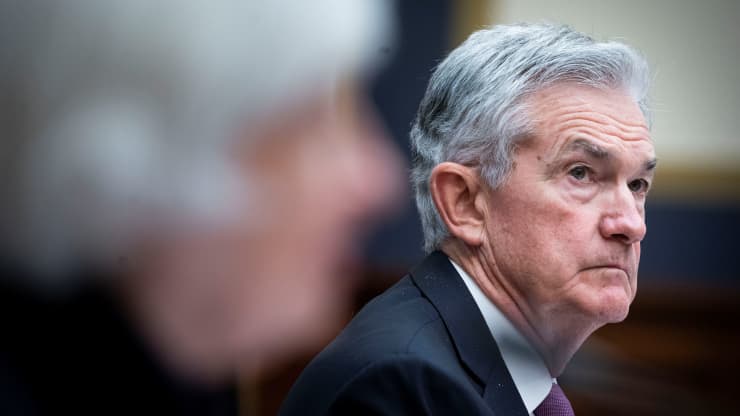
The Federal Reserve said it is working with the Office of Inspector General in its review of 2020 trades by a handful of central bank officials to determine if those transactions met ethics standards and did not break the law.
The addition of the Inspector General’s office adds weight to a growing controversy at the Fed after a series of financial disclosures showed that Vice Chair Richard Clarida, Dallas Fed President Robert Kaplan and Boston Fed President Eric Rosengren all made significant financial transactions in 2020.
Those trades, some of which totaled millions of dollars, drew ire from Capitol Hill and concern that central bank officials could have traded based on nonpublic information as the Fed embarked on emergency measures to help save the U.S. economy from the Covid-19 recession.
“As part of our comprehensive review, we began discussions last week with the Office of Inspector General for the Federal Reserve Board (OIG) to initiate an independent review of whether trading activity by certain senior officials was in compliance with both the relevant ethics rules and the law,” a Fed spokesman told CNBC. “We welcome this review and will accept and take appropriate actions based on its findings.”
Public backlash for and renewed scrutiny of Fed trading began in early September, when disclosures showed multiple Fed officials had bought and sold financial assets while working to craft and deploy emergency liquidity measures to help save the U.S. economy.
Those forms unveiled that Kaplan traded made multiple trades worth $1 million or more in individual stocks last year. Rosengren traded in real estate while he and other Fed members worked to buy up mortgage-backed securities.
Both resigned last week amid the public uproar, though Rosengren cited health issues for his early exit.
Though the Fed published Clarida’s transactions in May, renewed concern on Capitol Hill in recent days has centered on his move to shift between $1 million and $5 million from a broad-based bond fund into broad-based equity funds in February 2020, just before markets plunged in March as the U.S. introduced widespread lockdowns to slow the spread of Covid-19.
Among its many efforts to support the economy, the Fed slashed interest rates to zero and began purchasing $120 billion in Treasury bonds and mortgage-backed securities each month to flush markets with liquidity.
The culmination of trades by Fed leadership prompted Sen. Elizabeth Warren, D-Mass., to on Monday urge the Securities and Exchange Commission to open an insider trading probe into Clarida, Kaplan and Rosengren.
Clarida’s trades “were executed prior to his involvement in deliberations on Federal Reserve actions to respond to the emergence of the coronavirus and not during a blackout period,” a Fed spokesman told CNBC on Monday. “The selected funds were chosen with the prior approval of the Board’s ethics official.”
Amid the fallout, the Fed announced in mid-September that it has begun a review of its ethics rules, which Fed Chair Jerome Powell later said are insufficient.
“We understand very well that the trust of the American people is essential for us to effectively carry out our mission. And that’s why I directed the Fed to begin a comprehensive review of the ethics rules around permissible financial holdings and activity by Fed officials,” he said last month.
The central bank’s current rules are “now clearly seen as not adequate to the task of really sustaining the public’s trust in us,” Powell added.
Other Fed leaders, such as Richmond Fed President Thomas Barkin, did little to no trading in 2020 but held several financial holdings in excess of $1 million.
His stakes included Coca-Cola stock worth more than $500,000 but less than $1 million. Barkin’s largest holdings, worth $1 million or more, included a variety of exchange-traded and mutual funds overseen by outside managers.





























